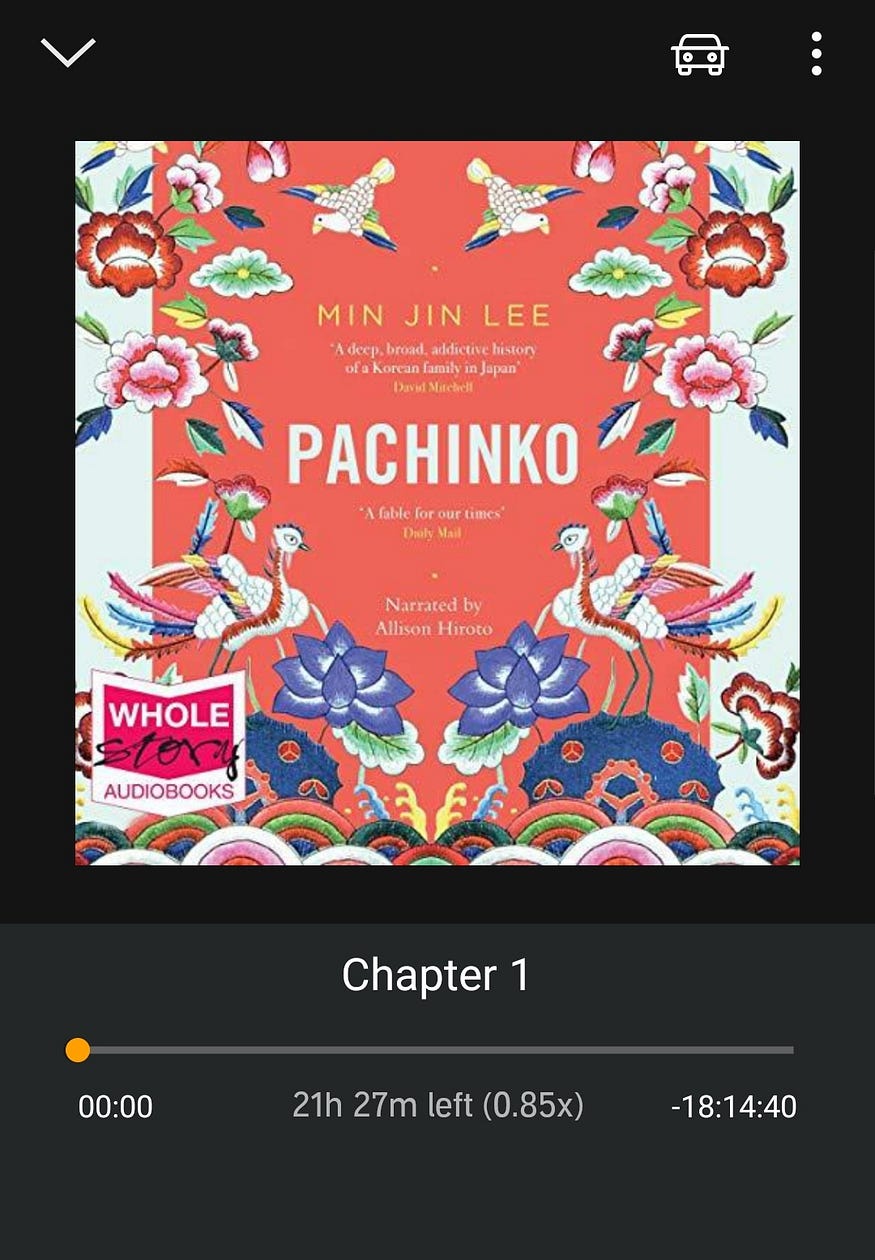Book Review: “Pachinko” by Min Jin Lee
(** First published on my Medium account - https://nishaagni.medium.com/book-review-pachinko-by-min-jin-lee-fc4ed5a694f2)
If you’ve been on Instagram, Goodreads or Litsy in the past year, you’ll certainly have heard of this book. Following the acclaim received by Yaa Gyasi’s Homegoing, books that championed the struggles of ostracised members of the society — specifically those who were forced to leave their home and immigrant to foreign lands — picked up steam. Pachinko was one of these books.
Just like its namesake game, Pachinko held my fascination for a long time, before I finally took the plunge. I entered its world of grand promises with an open mind and an eager heart. I hoped I would walk away with the big payout.
But, as with the game, the novel offered sparse rewards. A small cash prize here and there; but never the jackpot. By the end, the book had left me confused and dissatisfied.
Review
Pachinko is the story of Sunja, a poor Korean girl who due to desperate personal circumstances, is forced to move to Japan at the height of the Japanese occupation and when the political tension between Korea and Japan was extreme. The book follows her life in an unfamiliar country that has never wanted her (or the scores of other Koreans who reach her shores) and which never intends to accept her and her family.
The novel is divided into three books. Book 1 focuses on Sunja’s childhood and up to the time of her marriage, Book 2 on her life as a poor mother struggling to raise her children and Book 3 on her adult children and grandchildren.
As I listened to the book on Audible, I initially felt that I was going to get a beautiful, layered portrayal of a family’s legacy in a bigoted country. But, I was quickly snapped out of this expectation, as Min Jin Lee continued to deliver one confused paragraph after another.
Don’t get me wrong, the book isn’t BAD. There are shimmers of inspired writing here.
Certain characters like Isak, Mozasu and Kyunghee are sketched very well. Certain parts of the story in Books 1 & 2 are heartbreaking and eye-opening. I certainly learned a lot about the cultural and social implications of being a Korean in Japan; and it reminded me how people of African descent (or any coloured minority) are unfairly treated in many places even today.
But, these positives are completely undone when we reach Book 3. Except for the first few chapters, the rest were a complete mess. Certain storylines that were started at the end of Book 2 and the beginning of Book 3 were suddenly dropped and never alluded to again. New characters — who didn’t add any value to the story — were crammed into the last few chapters. The story was over-sexualized to the point that it was cringe-y. In short, a novel that had started on a strong footing became weaker and weaker with each passing minute.
Audible Narration
Allison Hiroto has an easy-to-understand diction and a gentle voice. Her ethnic background made her a good choice as the narrator since there are a few Japanese phrases and sentences in the book. But, her voice modulation range is very limited, often bordering on monotone. I personally found the narration slightly boring, but manageable.
Verdict
Pachinko wasn’t terrible. The author’s intentions about showcasing a less-known cultural and political experience must be lauded.
But somewhere along the line, Lee seems to have forgotten the premise on which this novel was based. The latter half of the book meanders aimlessly and dilutes the overall message of the story.
Should you pick Pachinko up? You can. There’s nothing expressly wrong with it.
But for me, the novel didn’t hold enough conviction to hold my attention. If I had to recommend a book — a family saga — that encapsulated the struggles of immigrants across generations, I would still recommend Gyasi’s Homegoing.
Rating: 3/5
-Nisha Prakash


Comments